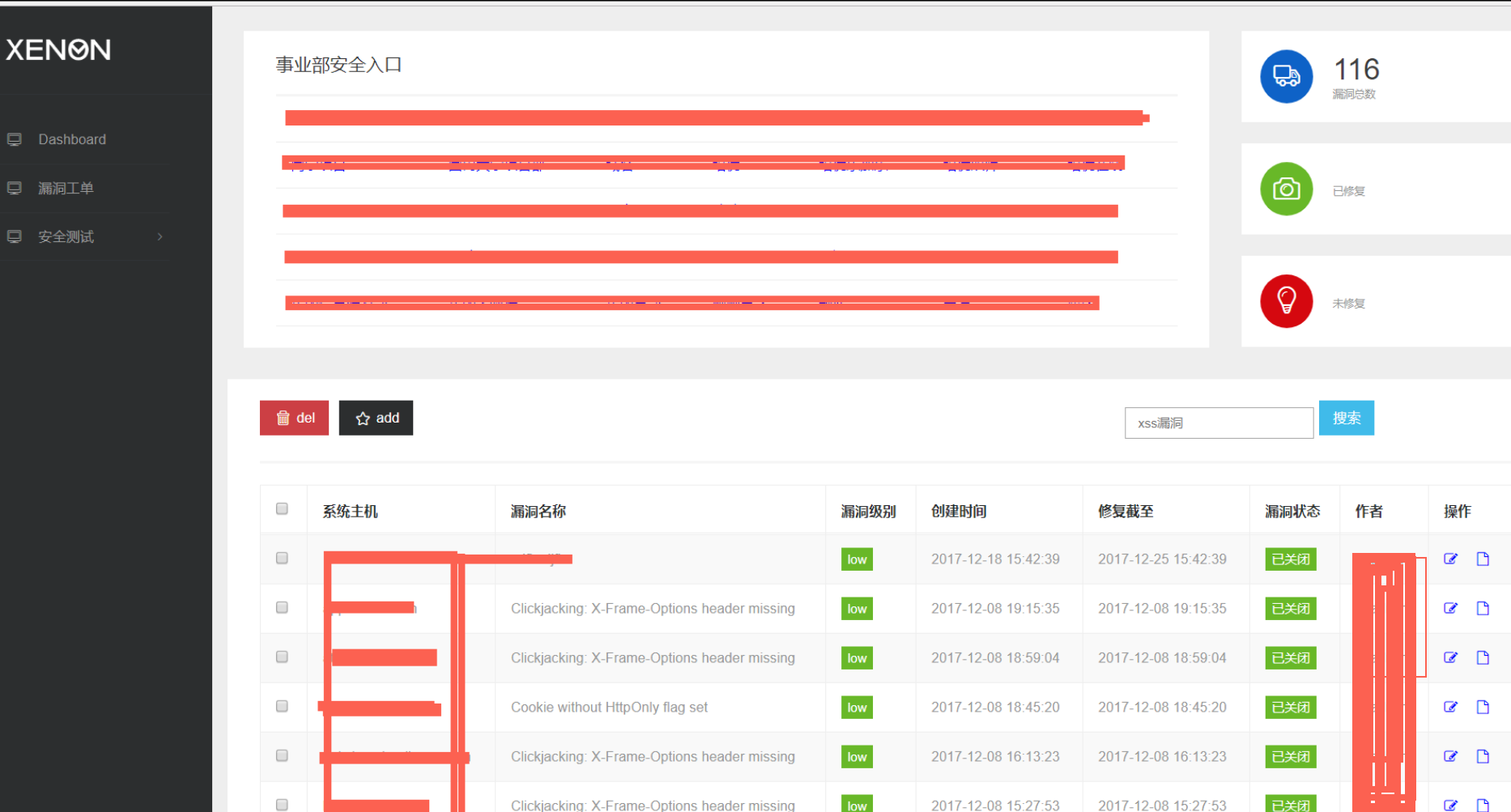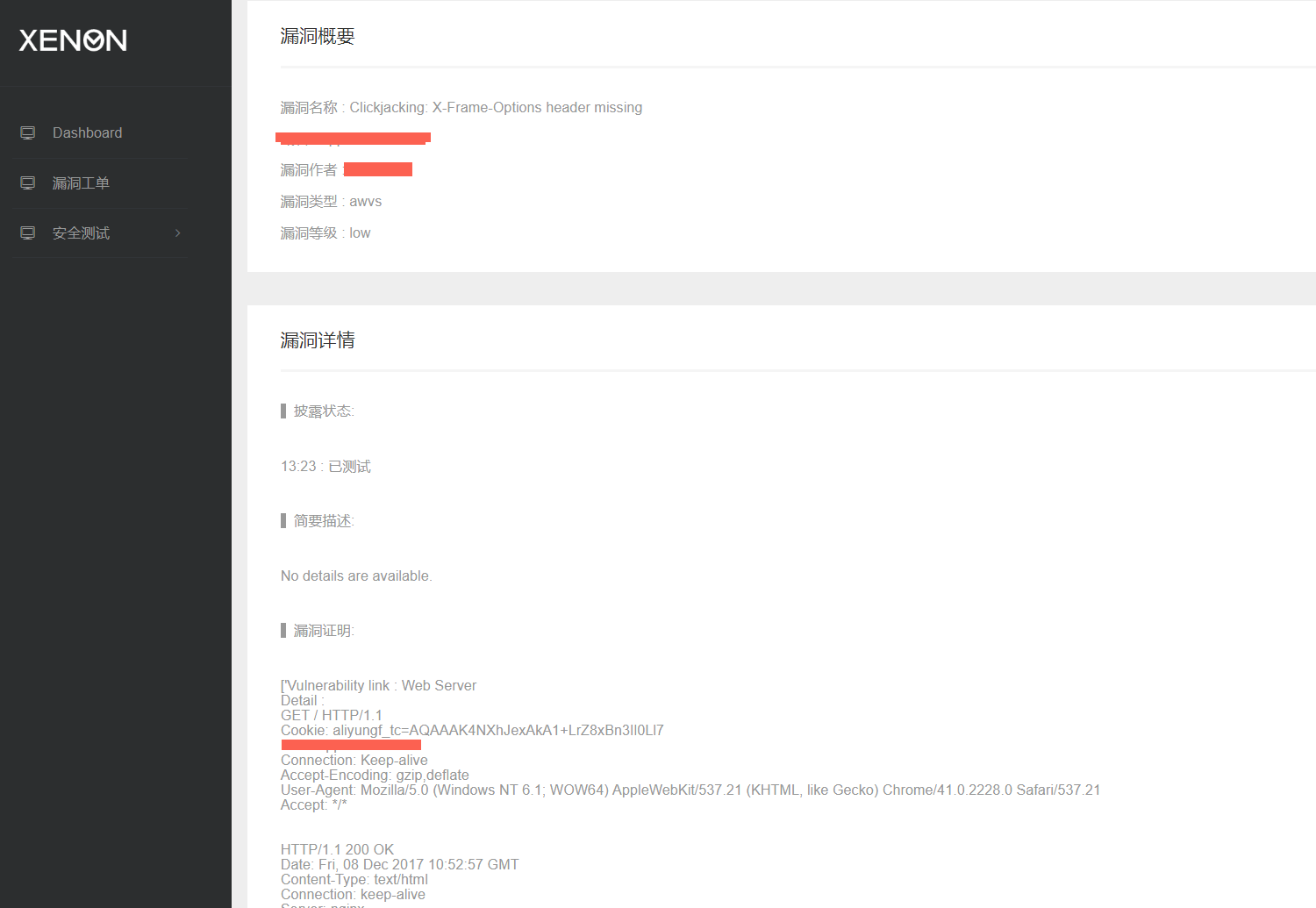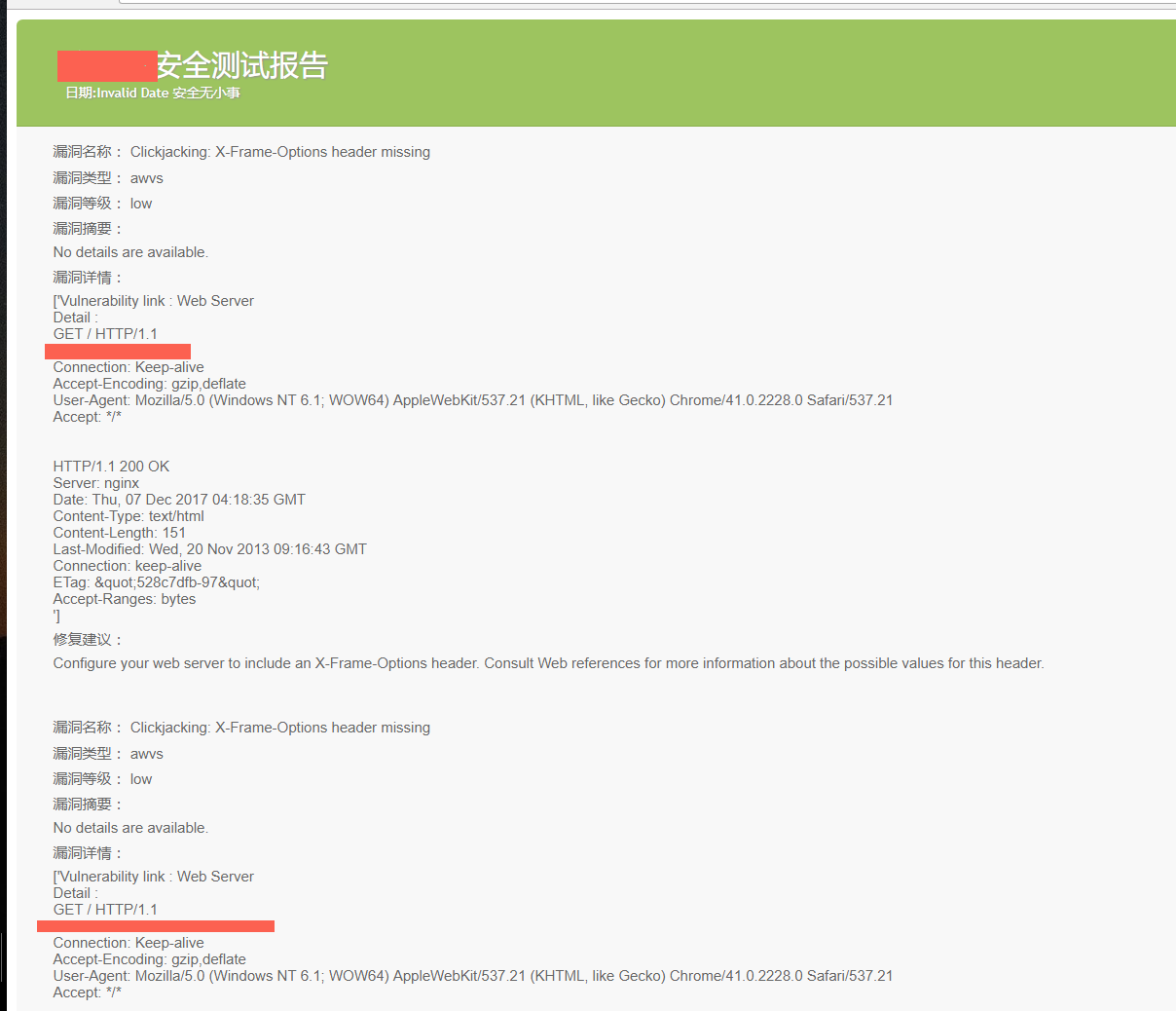wk agent v2
Structure

Requisites
python3.6
redis
nessus
awvs
sqlmap
Introduce
- Cross platform
- Single machine can also be distributed
- Access to third party scannning software
- Custom plugins
- Reports can genrate any formats that follow you
- Include program log and system log
Installation
pip install -r requirements.txt
Modify "core/setting.py" as following:
redis_host = 'localhost' #redis address
redis_port = 6379 #redis port
redis_pwd = '' #redis password
awvs_url : "127.0.0.1" , #awvs url
awvs_port : 8183 , #awvs port
nessus_url : "https://xxx.com" , #nessus url
nessus_name : "xx" , #nessus username
nessus_pass : "xx" , #nessus passowrd
Usage
redis-server #start redis
python2.7 sqlmapapi.py -s #start sqlmap
python engine.py #start engine
then, waiting for scan task queue into redis ...
测试样本:
1.搭建sql注入服务站点,先导入screen目录下的tt.sql数据库
2.安装flask,运行screen目录下存在注入的flask-test.py 小型web服务
python flask-test.py
3.模拟写入一条测试sqlmap的数据,修改screen目录下test.py的redis配置,然后运行测试步骤,如下:

- 提示:windows下并发有线程限制不能超过1024, 如果则linux下任务,可以修改engine.py下每个模块的线程数
- 服务端页面有点low,暂不公布源码;有继续研究的,可以自己写个简单服务端
服务端功能界面






Custom plug-in
# -*- coding:utf-8 -*-
#!/usr/bin/env python3
#Description: wukong exploit
#Author: Bing
#DateTime: 2017-05-10 23:08:39
import sys
sys.path.append("..")
from utils.exploit import *
import socket, re, gevent
from gevent.pool import Pool
from gevent import monkey; monkey.patch_all()
class wk(object):
def __init__(self, target = None ):
self.info = {
# 输入参数
"protorl" : target["scan_protorl"],
"host" : target["scan_target"],
"port" : target["scan_port"],
"cookie" : target["scan_cookie"],
"proxy" : target["scan_proxy"],
"user_agent" : random_useragent(target["scan_user_agent"]),
"fuzzing" : target["fuzzing"]
#{"user": "" ,"pwd" : "", "brute_char" : ""}
}
self.result = [{
# 结果信息
"status" : False,
"data" : {
"bug_name" : "",
"bug_author" : "Bing",
"bug_level" : normal,
"bug_type" : other,
"bug_ref" : "",
"bug_desc" : "",
"bug_result" : "",
"bug_repair" : ""
},
}]
def get_port_service(self, content):
REGEX = [['ssh','^b\'SSH'],['ftp','^b\'220.*?ftp|^b\'220-|^b\'220 Service|^b\'220 FileZilla'],['telnet','^b\'\\xff[\\xfa-\\xfe]|^b\'\\x54\\x65\\x6c|Telnet'],['http','http'],['mysql','^b\'.\\0\\0\\0.*?mysql|^b\'.\\0\\0\\0\\n|.*?MariaDB server'],['redis','-ERR|^b\'\\$\\d+\\r\\nredis_version'],['memcached', '11211', '^b\'ERROR']]
for info in REGEX:
name = info[0]
reg = info[1]
matchObj = re.search(reg, content, re.I|re.M)
if matchObj:
return name
return "None"
def exploit(self):
sock = socket.socket(socket.AF_INET, socket.SOCK_STREAM)
sock.settimeout(2)
host = self.info["host"]
port = int(self.info["fuzzing"]["brute_char"])
address = (host, port)
try:
sock.connect(address)
sock.send("OPTION / HTTP 1.1\r\n".encode())
text = sock.recv(256)
buffers = """{}""".format(str(text.__str__()[0:200]))
finger = self.get_port_service(buffers)
bug_list = {}
bug = {
"bug_name" : finger,
"bug_author" : "Bing",
"bug_level" : normal,
"bug_type" : other,
"bug_ref" : "",
"bug_desc" : buffers,
"bug_result" : port,
"bug_repair" : ""
}
bug_list["status"] = True
bug_list["data"] = bug
self.result.append(bug_list)
except Exception as e:
sock.close()
sock.close()
info = {
'scan_taskid': '3',
'scan_protorl': 'http://',
'scan_target': 'xx.xx.com',
'scan_port': '80',
'scan_cookie': 'sdf',
'scan_proxy': 'sdf',
'scan_user_agent': True,
'plugin_name': '端口扫描',
'plugin_file': 'plugins/wk-174745431967-00.py',
'model': 'brute',
'fuzzing': {'user_pwd': '', 'brute_char': '80'}
}
t = wk(info)
t.exploit()
print(t.result)
Contribute
If you want to contribute to my project please don't hesitate to send a pull request. You can also join our users, by sending an email to me, to ask questions and participate in discussions.
Issue
Notice:
everything in here that just for fun ...
if you hava some question or good idea,you can leave a message to me!


